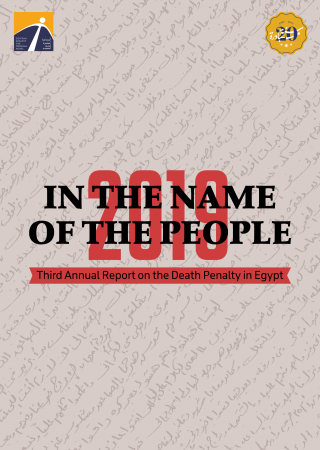Files: Prisons and detention facilities
The undersigned organisations condemn the arbitrary detention of Eritrean asylum-seekers in Egypt and call upon the Egyptian government to abide by international and regional treaties and conventions on refugee rights.
Egyptian Initiative for Personal Rights publishes the English translation of the Third Annual Report on the Death Penalty in Egypt, which was initially published in Arabic on the 28th of October 2021. The report presents and documents death penalty sentences issued in Egypt in 2019 in cases that the research team was able to gain access to. Further, it attempts to provide an analysis on patterns regarding the use of the death penalty in Egyptian courts and the qualitative and quantitative changes with regards to resorting to this most severe penalty under Egyptian criminal law.
Human rights defender Mohamed El-Baqer must be released immediately and unconditionally, stated 20 human rights organisations.




